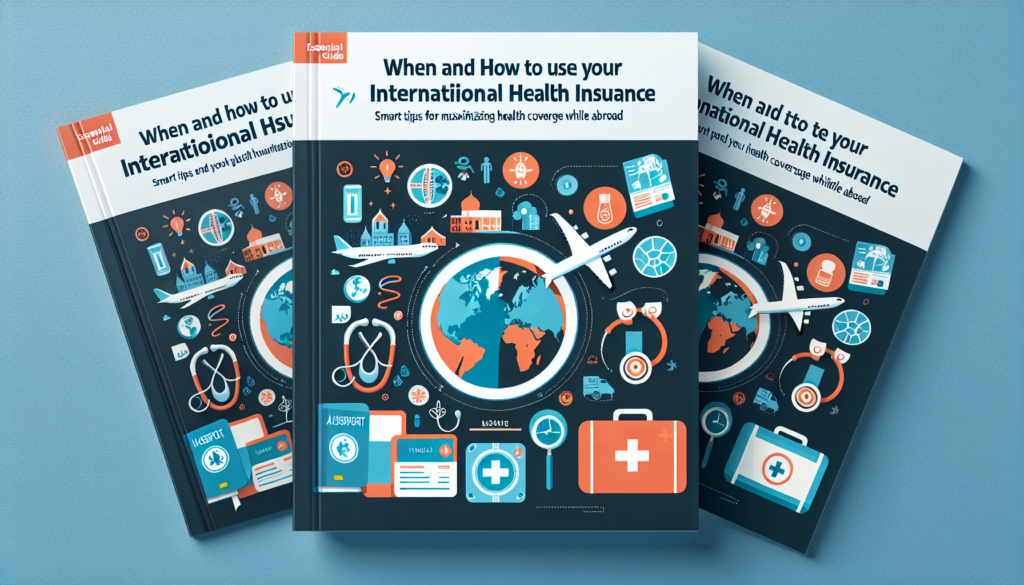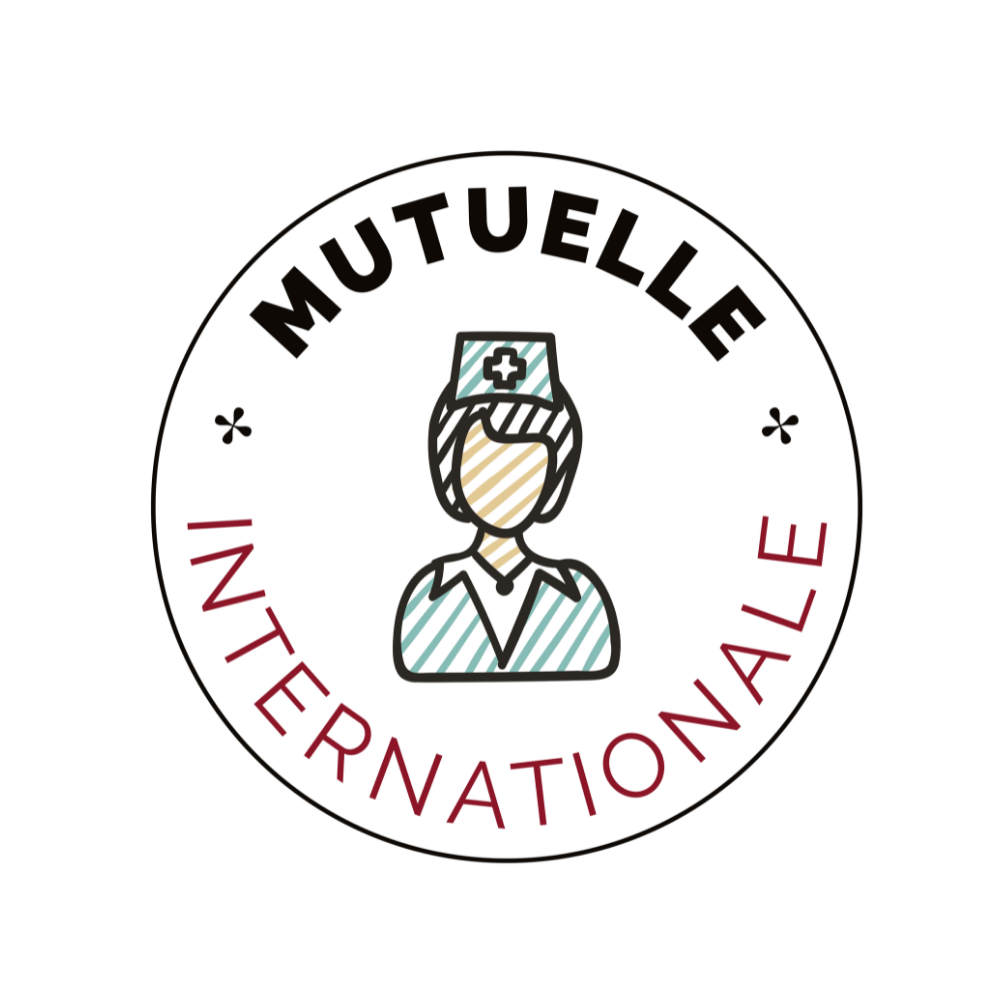“Find out how to optimize your international health insurance for worry-free travel! When and where to best use your medical coverage abroad? Follow our advice to travel with peace of mind.”
Where to find medical care abroad?

The importance of international health insurance
International health insurance is essential for anyone who frequently travels abroad, especially for business reasons. It offers comprehensive coverage, guaranteeing quality care wherever you are. Good insurance protects you not only from the high costs of medical care, but also from the uncertainty of finding a suitable provider in a foreign country.
Understanding your international health insurance coverage
It is crucial to understand what your international health insurance covers before you travel. Here are some things to check:
- Medical consultations
- Emergency hospitalization
- Prescribed medications
- Urgent dental care
- Repatriation assistance
Make sure your insurance also includes specific care needed for chronic or pre-existing conditions and covers periodic medical exams.
How to find quality medical care abroad
When you need medical care abroad, it’s important to know where to look. Start by contacting your insurance company, who can provide you with a list of trusted providers in your area. Also use online resources and mobile apps that list hospitals and clinics with good recommendations.
Procedures to Follow in a Medical Emergency
In the event of a medical emergency, follow these steps to ensure rapid and effective treatment:
- Contact local emergency services immediately.
- Inform your insurance company as soon as possible for advice and assistance.
- Keep all documents and receipts for treatment received, as you will need them for reimbursement claims.
Repatriation assistance may also be necessary in certain serious cases. Make sure your insurance covers these costs and plans the repatriation efficiently.
Maximize the benefits of your international health insurance
To get the most out of your international health insurance, adopt the following best practices:
- Keep a digital copy and a paper copy of your insurance policy with you at all times.
- Find out about the healthcare providers available in your destination before you leave.
- Use teleconsultation services if available for quick and easy consultations.
By being well prepared and informed, you can travel with peace of mind, knowing that you have access to the best medical care, wherever you are in the world.

Discover the pitfalls to avoid when it comes to international health insurance to travel with peace of mind and effectively protect your health abroad. Essential reading to avoid unpleasant surprises and choose the best coverage suited to your needs. Coverage…

Managing medical emergencies abroad
Find out how to anticipate and effectively manage medical emergencies abroad with adapted international health insurance. An essential for traveling peacefully and safely! Understanding the different types of medical emergencies Critical medical emergencies Critical medical emergencies are those that immediately…
Procedures to follow in the event of hospitalization abroad

Understanding your coverage
Before traveling abroad, it is crucial to understand the terms of your international health insurance. Familiarize yourself with the coverage conditions, reimbursement limits and specific exclusions to avoid unpleasant surprises. Make sure you know the steps to follow to report a claim and the documents needed for rapid assistance.
Contact your insurance as soon as possible
In the event of hospitalization abroad, contact your international health insurance as soon as possible. Most companies have 24/7 telephone assistance for medical emergencies. Provide all relevant information: your policy number, details of your hospitalization, and, if possible, an estimate of costs. This will allow your insurer to open a file and start the treatment procedure.
Inform the hospital
When you are admitted to hospital, immediately inform the medical staff of your international health insurance. Provide them with your insurer’s contact details and make sure they are willing to cooperate with them in handling payments. Some insurance companies have agreements with international hospital networks which can streamline administrative procedures.
Obtain the necessary documents
To facilitate reimbursement of your healthcare costs, keep all documents relating to your hospitalization. This includes :
– Detailed invoices for care received
– Medical reports
– Prescriptions
– Any other documentation provided by hospital staff
These documents must be submitted to your insurance to justify the costs incurred.
Follow reimbursement procedures
Once you leave the hospital, check the specific steps to follow to obtain reimbursement for your medical expenses. Often, it will be necessary to complete a reimbursement request form and attach the documents obtained.
h2>Keep a copy of all communications
Keep a copy of all communications exchanged with your international health insurance as well as submitted documents. This includes emails, letters and application forms. In the event of a dispute or problem with your file, these elements can serve as proof and facilitate the resolution of the problem.
Use of additional services
Some international health insurance plans offer additional services in the event of hospitalization abroad, such as repatriation assistance or psychological support. Don’t hesitate to take advantage of it. These services can greatly help you during a stressful time and improve your overall experience.
By following these steps, you ensure optimal care and rapid reimbursement in the event of hospitalization abroad. Take the time to understand your insurance before you leave and stay in regular contact with your provider to ensure the best possible service.

Find out how to get reimbursed quickly and efficiently with your international health insurance. Simplify your procedures with our practical guide on the reimbursement procedure. Steps to submit your reimbursement request Prepare the necessary documents In order to obtain reimbursement…
How much does international health insurance cost?
Find out when and how to use your international health insurance, as well as the associated costs. Immerse yourself in this article to learn everything about the importance and benefits of international health insurance tailored to your needs. Why does…
Countries where your health insurance is accepted
Understand the geographic scope of your international health insurance
When opting for international health insurance, it is essential to check the countries covered by your contract. Each insurance offers varied geographic coverage, ranging from specific areas to global coverage. Before you travel, make sure your destination is included in your health insurance plan to avoid any unpleasant surprises in the event of a medical emergency.
Geographic areas generally covered
Insurers often classify countries into different coverage areas. Here are some examples of frequently used geographic areas:
– Europe zone : It generally includes the European Union as well as some neighboring countries such as Norway, Switzerland and Iceland.
– World Zone (excluding USA) : Covers countries worldwide except the United States.
– World Zone : Covers all countries, including the United States.
Make sure you understand the geographic classification of your international health insurance policy so you know exactly where you are covered.
The specificities of premium quotes according to region
The cost of your international health insurance can vary significantly depending on the regions covered. For example, medical costs in the United States are very high, so coverage included for this country may increase your insurance premium. Many insurers offer flexible options to choose or exclude certain regions based on your needs and budget.
Countries often excluded from standard coverage
Certain geographic areas are often excluded from standard coverage due to high risks linked to armed conflicts, insecurity or insufficient medical infrastructure. For example, countries at war or in humanitarian crisis may not be covered by traditional international health insurance. Always check the list of exclusions in your contract and consider specialist insurance if you need to travel to risky areas.
Additional guarantees for global coverage
If you travel frequently to various parts of the world, opt for international health insurance that offers additional guarantees. Here are some common options to consider:
– Repatriation assistance : Coverage for emergency medical repatriation to your country of residence.
– Medical evacuation : Emergency medical transportation to the nearest hospital providing the necessary care.
– Dental and optical care : Coverage for dental and optical treatments when needed abroad.
These additional guarantees provide peace of mind and comprehensive protection, no matter where you are in the world.
How to check coverage at your destination
Before leaving for a trip, take the time to:
1. Carefully read the terms and conditions of your international health insurance contract.
2. Contact your insurer’s customer service to confirm coverage for your specific destination.
3. Consult online resources or reviews from other travelers to learn about the experiences of policyholders in the country you are traveling to.
By following these steps, you will be better prepared for your business trips and can travel with peace of mind knowing that your health is well protected.

How to use your international health insurance?
Discover the keys to effectively using your international health insurance! When and how to call on your protection for medical care abroad? Answers in this essential article! When and how to use your international health insurance? : How to use…

When to use your international health insurance?
Discover the keys to getting the most out of your international health insurance! When and how to best use it? An essential guide to optimal protection when traveling abroad. When and how to use your international health insurance? : When…
How to check your health insurance agreements
Understanding Your International Health Insurance Agreements
When traveling abroad for business, it is crucial to understand your international health insurance arrangements. Before leaving, take the time to check certain essential information to avoid unpleasant surprises.
Make sure your insurance covers medical care in the countries you are going to visit. Each country has different healthcare systems and some insurances may have limited agreements or exclude certain regions.
Evaluate International Medical Coverage
First, check your insurance policy details to find out the specifics of your medical coverage abroad.
Check if medical consultations, hospitalizations, surgical procedures and outpatient care are included.
Keep in mind any exclusions that may be specified, such as extreme sports or pre-existing conditions.
Identifying Medical Partnerships
Your international health insurance may have partnerships with specific hospitals or clinics abroad.
Identify these facilities so you know where to go in case of an urgent medical need. This not only ensures that you will receive quality care, but also that the costs will be covered directly by your insurance.
Emergency Repatriation Assistance
Another critical aspect is repatriation assistance. Make sure your insurance offers this service and understand the terms and conditions.
This assistance is essential in the event of serious health problems requiring an urgent return to your country of origin. Carefully read the conditions for activating this service, in particular the emergency contact numbers and the steps to follow.
Reimbursement Procedures
It is equally vital to understand the reimbursement procedure for your international health insurance. Know what documents are required for each type of medical expense and how to submit those documents.
Find out about reimbursement processing times in order to plan your medical budget adequately.
Check the Quality of Customer Service
The quality of your insurance’s customer service is a major factor. You must be able to count on responsive support that is available when needed.
Test customer service before you leave by asking important questions. This will give you an idea of their responsiveness and ability to resolve problems quickly.
Best Practices to Adopt Before Traveling
To ensure optimal coverage, consider these best practices before your departure:
- Keep a digital and paper copy of your insurance policy.
- Write down the emergency numbers and useful contacts for your insurance.
- Inform your insurer of your destinations and the length of your stay.
By taking these precautions, you ensure peace of mind and can fully concentrate on your professional activities abroad.

What is international health insurance?
Find out how to get the most out of your international health insurance! When and how to use it effectively to protect yourself when traveling abroad? Learn all about this essential type of insurance to guarantee your well-being while traveling.…
Types of care covered by international health insurance
Basic Medical Care
International health insurance gives you easy access to basic medical consultations with general practitioners. These consultations are essential for diagnosing common health problems and obtaining prescriptions. They also include routine visits and annual checkups, often necessary to maintain your overall well-being.
Specialized Care
With international health insurance, you also benefit from consultations with specialists. This includes appointments with cardiologists, dermatologists, gynecologists, and other medical experts. These specialized consultations are crucial to receiving an accurate diagnosis and treatment tailored to specific conditions.
Urgent Care
Emergency care is one of the most critical aspects of international health insurance. In the event of an accident or serious illness, your insurance covers hospitalization costs, emergency surgical interventions, and urgent consultations. Prompt management of these situations is vital to minimize serious complications.
Hospitalization and Surgery
When hospitalization is necessary, your international health insurance will cover the costs of hospital stay, surgical procedures, and post-operative care. These fees include room, board, nursing care, and any necessary medical treatment during your stay.
Dental care
Dental care is often included in quality international insurance plans. This covers routine consultations with dentists, scaling, cavity care, and tooth extractions. For more complex treatments such as implants or orthodontic procedures, some insurance companies offer additional options.
Vision Care
Vision care coverage includes eye consultations, regular vision tests, and costs associated with glasses and contact lenses. For people with eye problems requiring surgical procedures, such as laser surgery, some insurance policies also include these treatments.
Assistance in the Event of Repatriation
In the event of a serious medical emergency, good international health insurance will provide repatriation assistance. This means that you can be transferred to your home country or another suitable medical facility if the necessary care is not available locally. This option ensures that you receive the best care in emergency situations.
Preventive Care and Vaccinations
Preventative care aims to detect and treat health problems before they become serious. This includes health checks, screenings (such as cancer or chronic diseases), and vaccinations. Covering this preventative care helps you better manage your long-term health and prevent high medical costs.
Mental Health
Mental health is a crucial aspect often covered by international health insurance. This includes psychological, psychiatric consultations, and behavioral therapies. Treatments for conditions such as depression, anxiety, and other mental health issues may also be supported.
Maternity Care
For pregnant women, quality international health insurance will cover prenatal care, childbirth, and postnatal care. This includes regular consultations with an obstetrician, ultrasounds, and necessary tests to ensure a healthy pregnancy.
The formalities to be respected depending on the destination and the country
The main formalities of international health insurance
When you travel abroad frequently, it is essential to have health coverage that meets your specific needs. Formalities may vary depending on the country of destination, but certain elements remain universal.
To obtain international health insurance, it is usually necessary to provide some basic information:
- Full name and contact details
- Relevant medical information
- Previous insurance references (if applicable)
- Planning for upcoming trips
Specific formalities according to European countries
If you plan to travel to Europe, the procedures are generally simplified thanks to the European Health Insurance Card (EHIC). This card allows you to benefit from medical care under the same conditions as local residents. Be careful, however, to check coverage for emergency and repatriation situations, as this may vary from one country to another.
To obtain the EHIC, simply request it from your health insurance organization before your departure. This card is valid for a limited period, so it is advisable to check its expiration date before each trip.
Formalities for countries outside Europe
Traveling outside Europe often involves additional steps:
- Check country-specific health coverage requirements.
- Some countries require a medical visa, so it is important to prepare all the necessary documents.
- Find out about your insurance partner medical establishments in the destination country.
Additionally, some countries require that you undergo a medical consultation before entering their territory. Make sure you have an up-to-date medical certificate and all required vaccinations to avoid unpleasant surprises.
Importance of repatriation assistance
A medical emergency can occur at any time during a business trip abroad. Repatriation assistance is a crucial service that must be included in your international health insurance. This option not only guarantees basic medical costs, but also the cost of medical transport to repatriate you to your country of origin.
Before taking out insurance, make sure that the repatriation assistance service is available 24/7 and that it covers all the destinations you plan to visit. A good insurance company should have representatives who speak several languages to facilitate procedures when you are abroad.
Ease of reimbursements
To make your experience with international health insurance as smooth as possible, choose insurance that makes reimbursements easy. Opt for an insurer that offers direct payments to healthcare establishments to avoid paying large costs up front.
Some insurers offer mobile applications that allow you to submit claims instantly and track the status of your case in real time. This type of service is particularly useful for traveling professionals who need quick and easy access to their insurance information.
Quality of customer service
Finally, good customer service is essential. Choose international health insurance with accessible, multilingual and responsive customer service. Reps’ response time and attitude can make all the difference when you have an urgent question or problem to resolve.
Look for reviews and testimonials from other policyholders to gauge the quality of customer service before making your decision. Good insurance should offer constant support and be able to provide accurate and rapid responses.
